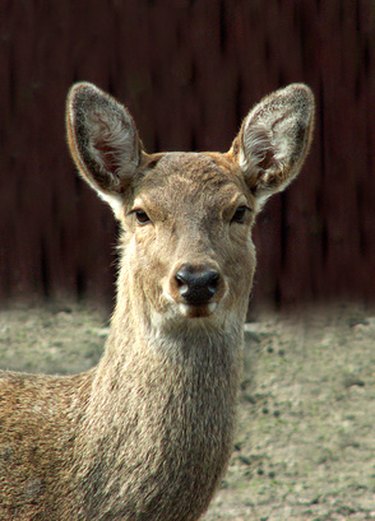
There are more than 800 species of ticks, a blood-sucking parasite that feeds on birds, mammals and reptiles. Certain species, like the deer tick, can carry diseases dangerous to humans and pets, such as Lyme disease.
Mow and Remove
Video of the Day
Mowing the grass to three inches or less creates a low-humidity environment for ticks, killing many of them off. Removing yard debris like brush, leaf litter and weeds decreases tick habitat, as does removing undergrowth and dense plant beds next to the house.
Video of the Day
Deter Animals
Animals like birds and rodents carry ticks. Place bird feeders, bird baths and wood piles as far from the house as possible, secure outside garbage and remove plants that deer--known tick carriers--love, such as arborvitae, azaleas, crabapples and rhododendrons. Replace with vegetation deers don't like, such as Scotch pine, Colorado blue spruce, boxwood, marigolds and daffodils. Reducing tick populations has the same practical effect as killing many of them: fewer tick bites.
Spray as a Last Resort
Insecticidal sprays, like permethrin, can be used as a last resort or in situations of high infestation. The website eBugs recommends spraying the entire yard and connecting outside house walls up to a height of 3 inches. Repeat the application in two weeks and then once every 30 days.